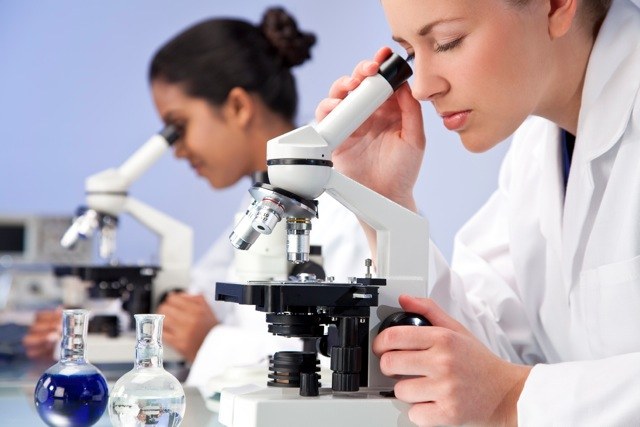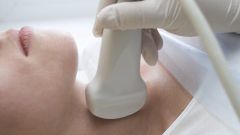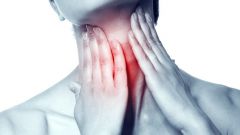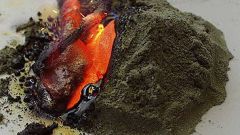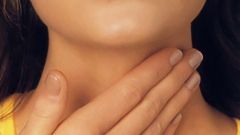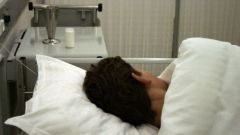Any testsrelated to the thyroid gland are performed only as directed by your doctor. Self such a survey take place is inappropriate. Results it is advisable to decipher with the assistance of the specialist.
Complex laboratory testing of thyroid implies the determination of thyroid-stimulating and thyroid hormones, thyroglobulin and antibodies to tissues and proteins of the body.
Thyroid-stimulating hormone (TSH) is produced in the pituitary gland on the principle of feedback. So the decrease in the level of thyroid hormones the thyroid gland, causes an increase in TSH levels.
Reference values for TSH are specified individually by each laboratory depending on the reagents. Usually the norm is 0.4-4 mkme/ml in pregnant women the concentration of the hormone should be below 2.5 mkme/ml.
A decrease in TSH below 0.4 indicates the presence of hyperthyroidism. In that case, if the thyroid hormones are higher than normal, we are talking about manifestos thyrotoxicosis, if normal, then subclinical.
In some cases, the decrease of TSH may be associated with adrenal pathology.
Increasing the concentration of TSH more than 4 mkme/ml is evidence of the hypothyroidism. Manifestum called hypothyroidism at low values of thyroid hormones, subclinical - when their normal value. In that case, if the TSH is above 10 mkme/ml, then we can talk about manifestos hypothyroidism even with normal values of thyroid hormones.
More than normal TSH can be in patients with severe somatic and mental diseases. Stress, primary adrenal insufficiency may also be accompanied by an increase in the concentration of the hormone.
Thyroid hormones are produced directly in the thyroid gland, some of them are activated in the peripheral tissues.
In the laboratory perform tests for total and free thyroxine (T4) and triiodothyronine (T3). Determination of the free hormone is considered to be more reliable for the diagnosis of thyroid diseases.
Low rates indicates the primary (high TSH) or secondary (low TSH) and hypothyroidism.
In that case, if T4 is higher than normal, then the patient has primary or secondary hyperthyroidism.
Analysis of thyroglobulin is prescribed for the treatment of thyroid cancer. Increasing the concentration of this protein after surgery may indicate recurrence of malignancy. In addition, the high concentration of thyroglobulin can be associated with autoimmune inflammation of the thyroid gland.
A high titer of antibodies indicates the presence of autoimmune process. Most often determined of antibodies in the blood to thyroid peroxidase (anti-TPO), antibodies to thyroglobulin (anti-TG) and TSH receptor antibody (anti-rtth).
Increasing the concentration of any antibody can be in chronic autoimmune thyroiditis. For diffuse toxic goiter the most characteristic high values of anti-RTG.
Studies show that the presence of antibodies not always associated with thyroid disease.
Complex laboratory testing of thyroid implies the determination of thyroid-stimulating and thyroid hormones, thyroglobulin and antibodies to tissues and proteins of the body.
Thyroid-stimulating hormone
Thyroid-stimulating hormone (TSH) is produced in the pituitary gland on the principle of feedback. So the decrease in the level of thyroid hormones the thyroid gland, causes an increase in TSH levels.
Reference values for TSH are specified individually by each laboratory depending on the reagents. Usually the norm is 0.4-4 mkme/ml in pregnant women the concentration of the hormone should be below 2.5 mkme/ml.
A decrease in TSH below 0.4 indicates the presence of hyperthyroidism. In that case, if the thyroid hormones are higher than normal, we are talking about manifestos thyrotoxicosis, if normal, then subclinical.
The use of somatotropin, bromcriptine, carbamzepine, cyproheptadine, dopamine, heparin, levodopa, metergoline, phentolamine can lead to lower TSH.
In some cases, the decrease of TSH may be associated with adrenal pathology.
Increasing the concentration of TSH more than 4 mkme/ml is evidence of the hypothyroidism. Manifestum called hypothyroidism at low values of thyroid hormones, subclinical - when their normal value. In that case, if the TSH is above 10 mkme/ml, then we can talk about manifestos hypothyroidism even with normal values of thyroid hormones.
TSH may rise due to the use of morphine, amiodarone, benserazide, clomiphene, galopiredol, iodide, lithium, methimazole, phenothiazine, propranolol, iodine-containing radiopaque media.
More than normal TSH can be in patients with severe somatic and mental diseases. Stress, primary adrenal insufficiency may also be accompanied by an increase in the concentration of the hormone.
Thyroid hormones
Thyroid hormones are produced directly in the thyroid gland, some of them are activated in the peripheral tissues.
In the laboratory perform tests for total and free thyroxine (T4) and triiodothyronine (T3). Determination of the free hormone is considered to be more reliable for the diagnosis of thyroid diseases.
Low rates indicates the primary (high TSH) or secondary (low TSH) and hypothyroidism.
Thyroid hormones react to pregnancy, severe stress, intake of oral contraceptives.
In that case, if T4 is higher than normal, then the patient has primary or secondary hyperthyroidism.
The thyroglobulin
Analysis of thyroglobulin is prescribed for the treatment of thyroid cancer. Increasing the concentration of this protein after surgery may indicate recurrence of malignancy. In addition, the high concentration of thyroglobulin can be associated with autoimmune inflammation of the thyroid gland.
Antibodies
A high titer of antibodies indicates the presence of autoimmune process. Most often determined of antibodies in the blood to thyroid peroxidase (anti-TPO), antibodies to thyroglobulin (anti-TG) and TSH receptor antibody (anti-rtth).
Increasing the concentration of any antibody can be in chronic autoimmune thyroiditis. For diffuse toxic goiter the most characteristic high values of anti-RTG.
Studies show that the presence of antibodies not always associated with thyroid disease.
